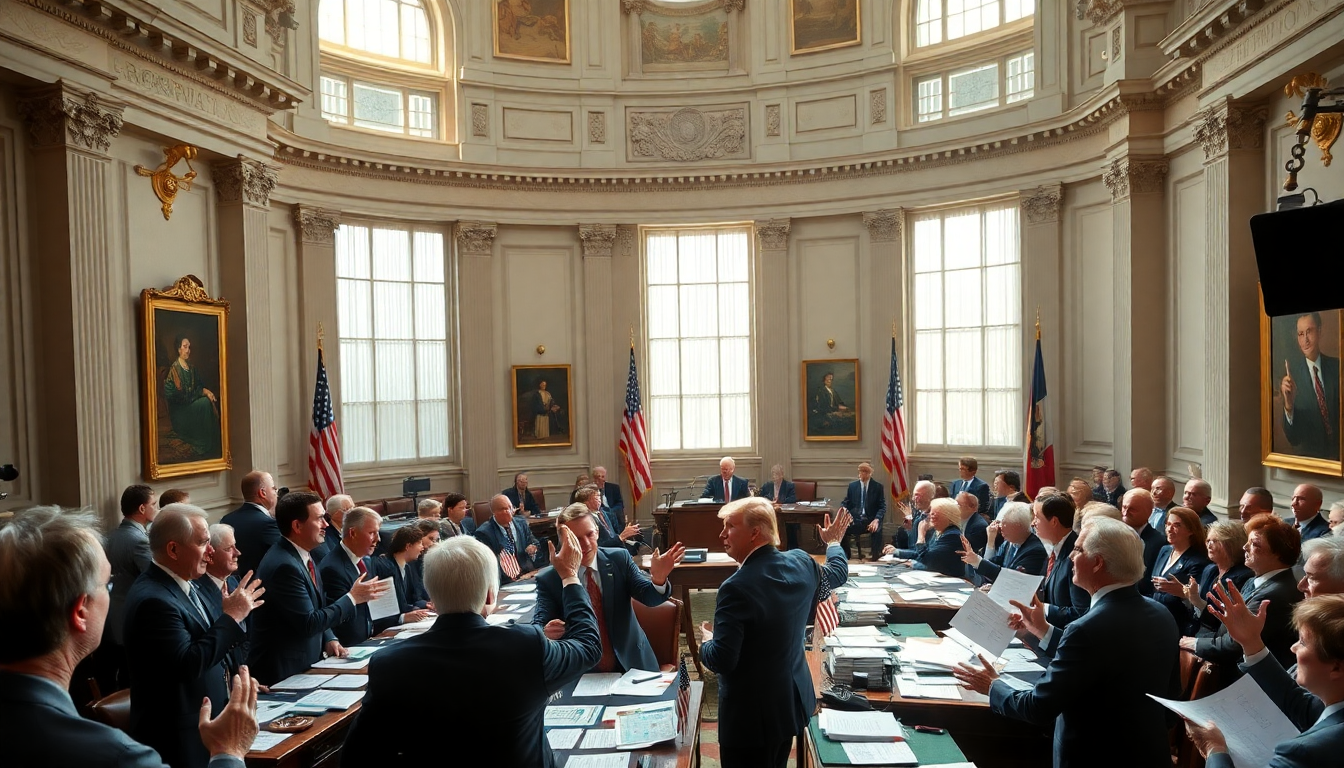Table of Contents
The political scene around President Donald Trump’s proposed spending bill, cheekily called the “One Big Beautiful Bill” (OBBB), is quite a sight to behold. With House Speaker Mike Johnson pushing to get this bill to a vote, the stakes couldn’t be higher—both for the economy and the Republican Party. If the OBBB passes, it could be a game-changer for economic growth, but it’s already facing some serious pushback from within the party itself. Curious about what’s really at stake? Let’s dive in.
Unpacking the OBBB
The OBBB promises to tackle essential issues like national defense, border security, and investments in the energy sector—core commitments made by President Trump during his 2024 campaign. However, the road to getting it passed is anything but smooth. If it sails through, it could signal a significant step forward for the economy, but the growing dissent among Republicans raises some big questions about its future.
Some party members, often referred to as “deficit hawks,” are voicing concerns about the potential impact on national debt and fiscal responsibility. This division highlights a deeper ideological split within the party that could stall the bill’s progress. You can practically feel the tension as Congress members weigh the potential benefits against the risks of increased spending.
And let’s not forget the slim margins within the House and Senate Republican majorities. Just a handful of dissenting votes could derail the OBBB, leading to possibly historic tax hikes and jeopardizing funding for military and border security. This internal conflict also sets the stage for primary challenges against Republicans who oppose the bill, showcasing just how high the stakes are in this legislative battle. Isn’t it fascinating how one bill can create such a ripple effect?
Political Dynamics and Economic Impacts
The proposed spending cuts in the OBBB have raised eyebrows, especially among Senate members who are cautious about making further alterations. Any additional cuts could upset the fragile compromise currently in place, risking support not only in the House but also across the Senate.
But what’s truly at stake goes beyond just fiscal policy; it’s about the fundamental principles of governance and the future direction of the Republican Party. If the bill stumbles, it could send shockwaves through the market, leading to a wave of uncertainty that might shake investor confidence and hinder economic growth. On the flip side, if the OBBB passes, it could lay the foundation for a robust economic future, aligning perfectly with Trump’s vision of reinvigorating the American economy.
As the debate heats up, the possibility of a second reconciliation bill looms on the horizon. This could be a chance for fiscal conservatives within the party to advocate for deeper cuts and reforms, especially concerning entitlement programs. However, the success of such reforms will depend on party leaders’ ability to unite their members around a shared vision. Isn’t it intriguing how teamwork can make or break legislative efforts?
Looking Ahead: Political and Economic Forecast
As we look to the future, the outcome of the OBBB is likely to set a benchmark for upcoming legislative initiatives. If it passes, it could empower the GOP to pursue more economic projects, reaffirming their commitment to fiscal responsibility while addressing crucial national concerns. Conversely, failing to gather support could lead to a tumultuous period, both politically and economically, as the party grapples with internal conflict and voter discontent.
Ultimately, the GOP needs to steer through these choppy waters with a strategy that emphasizes both economic stability and party unity. The decisions they make now will echo far beyond Capitol Hill, affecting the broader economic landscape and shaping the political fortunes of the Republican Party for years to come. Isn’t it fascinating how the choices made today can shape the future?


